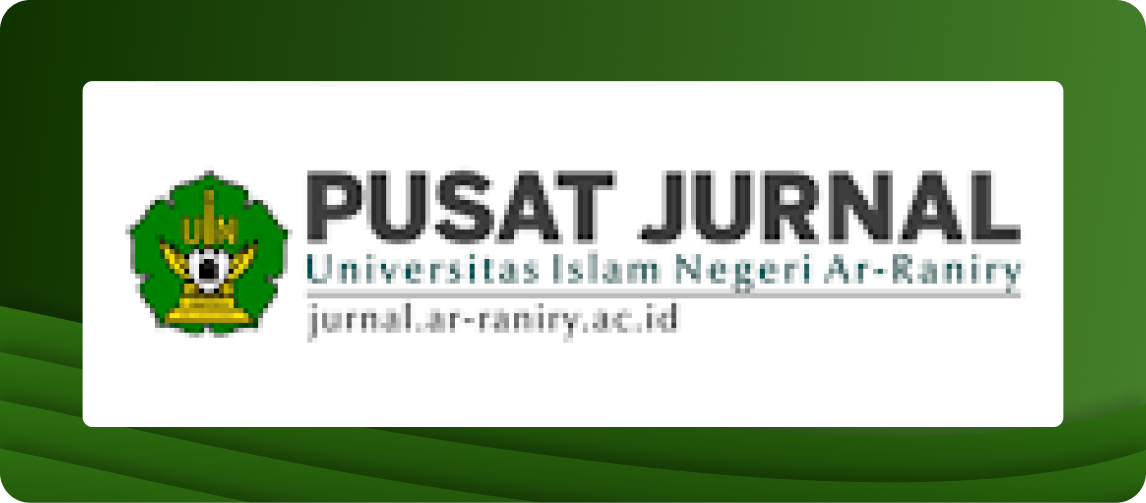‘Iddah Wanita Hamil Karena Zina Menurut Hukum Islam dan Hukum Positif
DOI:
https://doi.org/10.22373/ujhk.v4i1.10097Keywords:
'Iddah, Pregnant Women, AdulteryAbstract
'Iddah is a common problem, but when faced with special conditions such as women who commit adultery, it becomes a complicated problem and differences of opinion arise among scholars. The scholars differ in their opinion in determining whether or not there is an 'iddah for pregnant women due to adultery. The author discusses three problems. First, how are the provisions of Islamic law to determine the 'iddah for adulterers, Second, how according to the provisions of positive law to determine the 'iddah for adulterers, Third, the arguments and methods used in fiqh to determine the 'iddah for adulterers. This research was conducted with a qualitative approach, with the type of literature research (library research). The results of the study found that the provisions of Islamic law on 'iddah for pregnant women due to adultery are that there are two opinions according to the scholars that the Shafi'i and Hanafi schools do not require 'iddah, and are allowed to marry the woman, because interfering in the form of adultery does not cause nasab relations. then it is not forbidden to marry this woman. The Maliki and Hanbali schools oblige the woman to perform her iddah, if she is pregnant then her iddah is until she gives birth, and if there is no visible pregnancy, her iddah is three times holy. Second, the positive legal provisions on 'iddah for pregnant women because of adultery also do not explain specifically about 'iddah for pregnant women due to adultery. Both in Law Number 1 of 1974 and in Government Regulation Number 9 of 1975. Third, the arguments and methods used in fiqh to determine the 'iddah for pregnant women due to adultery are according to the Shafi'i school using the provisions of QS.An -Nisa verse 24 and the hadith of the Prophet from Aisha, ra. According to the Hanafi school, it is based on the hadith of the Prophet. According to the Maliki school of thought, it comes from the words of Ibn Mas'ud, and according to the Hanbali school it comes from the QS. An-Nur verse 3.
References
Abdullah, Baeni dan Beni dan Ahmad Saebani. Perkawinan Dan Perceraian Keluarga Muslim. Bandung: Pustaka Setia, 2013.
Al-’Asqolani, Al-Hafizh Ibnu Hajar. Terjemah Bulughul Marom. Bogor: Pustaka Ulil Albab, 2007.
Al-Ghamidi, Ali bin Sa’id. Fikih Wanita Panduan Ibadah Lengkap & Praktis. Jakarta: Awam, 2012.
Al-Muhniyyah, Muhammad Jawad. Al-Ahwal al-Syakhsiyyah. Beirut: Dar al-Ilmi li al-Malayin, 1964.
Asqalani, Ibnu Hajar al-. Bulughul Maram Dan Dalil-Dalil Hukum. Jakarta: Gema Insani, 2013.
As-Sijistani, Abu Daud Sulaiman bin Al-Asy’ati. Sunan Abu Daud. Jakarta: Almahira, 2013.
Asy-Syarbini. Mughni Al-Muhtaj. Beirut: Dar el-marefah, 1997.
Ayyub, Syaikh Hasan. Fikih Keluarga. Jakarta: Pustaka Al-Kautsar, 2001.
Azzam, Abdul Aziz Muhammad. Fiqh Munakahat. Jakarta: Amzah, 2011.
Dirjen Lembaga Islam Depag RI. Ensiklopedi Islam. Jakarta: Depag RI, 1993.
Effendi, Satria. Ushul Fiqh. Jakarta: Kencana, 2005.
Ghozali, Abdul Rohman. Fiqh Munakahat. Jakarta: Prenada Media Group Kencana, 2008.
Jaziri, Abd ar Rahman al-. Kitab Al-Fiqh. Mesir: Maktabah at-Tjariyah al-Kubra, 1969.
———. Kitab Al-Fiqh ’ala Mazahib al-Arba’ah. Mesir: Maktabah al-Tijariyyah al-Kubra, 1969.
Kamal, Syaikh Abu Malik. Fiqh Sunnah Lin Nisaa’ Ensiklopedi Fiqih Wanita. Jawa Barat: Khazanah Fawa’id, 2017.
Latif, Djamil. Aneka Hukum Perceraian Di Indonesia. Jakarta: Ghalia Indonesia, 1985.
Mardani. Hukum Keluarga Islam Di Indonesia. Jakarta: Kencana, 2016.
Mugniyah, Muhammad Jawad. Al-Ahwal Asy-Syakhsiyyah ’ala al-Mazahib al-Khamsah. Jakarta: Lentera, 2006.
Qudamah, Ibn. Al-Mughni. Mesir: Maktabah al-Jumhiruyyah al-’Arabiyah, 1995.
Rachmat, Syafe’i. Ilmu Ushul Fiqh. Bandung: Pustaka Setia, 2007.
Rofiq, Ahmad. Hukum Islam Di Indonesia. Jakarta: PT.Raja Grafindo Persada, 2000.
Sabiq, Sayyid. Fiqh As-Sunnah. Beirut: Dar al-Fikr, 1983.
———. Fiqh As-Sunnah II. Jakarta: PT. Pena Pundi Aksara, 2006.
———. Fiqih Sunnah. Jakarta: Insan Kamil, 2016.
Sarong, Hamid. Hukum Perkawinan Islam Di Indonesia. Banda Aceh: PeNa, 2005.
Syarifuddin, Amir. Garis-Garis Besar Fiqih. Jakarta: Kencana, 2003.
———. Hukum Perkawinan Islam Di Indonesia. Jakarta: Kencana, 2006.
Undang-Undang Nomor 1 Tahun 1974 Tentang Perkawinan.
Uwaiyah, Syaikh Kamil Muhammad. Fiqih Wanita Edisi Lengkap. Jakarta: Pustaka Al-Kautsar, 1998.
Zuhaili, Wahbah az-. Fiqh Islam Wa Adillatuhu. Jakarta: Gema Insani, 2011.
———. Fiqih Imam Syafi’i 3. Jakarta: Al-Mahira, 2010.
———. Fiqih Islam Wa Adillatuhu Jilid 9. Jakarta: Gema Insani, 2011.
Downloads
Published
Issue
Section
License
Authors who publish in El-Usrah: Jurnal Hukum Keluarga agree to the following terms:
Authors retain copyright and grant the journal right of first publication with the work simultaneously licensed Attribution-ShareAlike 4.0 International (CC BY-SA 4.0) that allows others to share the work with an acknowledgment of the work's authorship and initial publication in this journal.
Authors are able to enter into separate, additional contractual arrangements for the non-exclusive distribution of the journal's published version of the work (e.g., post it to an institutional repository or publish it in a book), with an acknowledgment of its initial publication in this journal.
Authors are permitted and encouraged to post their work online (e.g., in institutional repositories or on their website) prior to and during the submission process, as it can lead to productive exchanges, as well as earlier and greater citation of published work. (See The Effect of Open Acces)

















